The Essential Guide to Merchant Accounts for New Business Owners
Starting a new business is an exciting journey, but it comes with its fair share of challenges. One of the most important aspects of running a business today is managing financial transactions effectively. For new business owners, understanding and setting up merchant services for small business is critical. Merchant services enable businesses to accept payments from customers, which is essential for driving revenue and building a solid customer base.
In this comprehensive guide, we will walk you through everything you need to know about merchant services for small business—from understanding what they are and how they work to choosing the right provider and ensuring your setup is smooth and effective.
What Are Merchant Services?
Merchant services refer to a wide range of financial services provided to businesses to facilitate payments from their customers. At its core, merchant services for small business allow merchants to accept payments through various methods like credit cards, debit cards, mobile wallets, and even cryptocurrency in some cases. These services play a pivotal role in ensuring that businesses can collect revenue seamlessly and securely, both online and in-store.
The importance of merchant services cannot be overstated. With the rise of digital transactions, customers increasingly expect businesses to offer diverse and convenient payment options. For a small business to succeed, it must be prepared to handle these demands, and merchant services are the key to making that possible.
Why Your Small Business Needs Merchant Services
Accepting payments is the foundation of any business transaction, and with more customers choosing to pay via electronic methods, merchant services for small business have become a necessity. Here are some of the main reasons why small businesses need merchant services:
1. Broader Payment Options
Customers today prefer to pay using a variety of methods, whether it’s credit cards, debit cards, mobile payment systems, or even buy-now-pay-later options. By offering a range of payment methods, businesses can attract a wider customer base. For instance, an individual who prefers using their smartphone to make payments might not consider a business that only accepts cash or checks.
2. Improved Cash Flow
Traditional methods of payment, like checks or cash, involve a time-consuming process of manual deposit and account reconciliation. With merchant services, payments are processed instantly or within a short period, ensuring a faster and smoother cash flow. For small businesses, having quick access to funds is vital for operations and growth.
3. Increased Customer Confidence
Modern customers expect businesses to accept credit or debit card payments, and many even prefer to pay with their mobile devices. By offering various payment methods, your business conveys professionalism and trustworthiness. Customers are more likely to complete a purchase when they know they can use their preferred payment method.
4. Access to Business Analytics
Many merchant services providers offer access to detailed reporting and analytics tools. This can help business owners track sales trends, analyze customer behavior, and make informed decisions. You can use these insights to identify which products or services are performing well and adjust your marketing strategies accordingly.
5. Secure Transactions
One of the most important benefits of merchant services for small business is the security it offers for both the business and its customers. Reputable providers invest in advanced encryption technology and fraud detection measures to protect sensitive data and reduce the risk of financial fraud.
Types of Merchant Services for Small Business
Different businesses have different needs when it comes to accepting payments. The right merchant service will depend on factors such as your business type, sales volume, and whether you primarily sell in-store or online. Here are some common types of merchant services:
Point of Sale (POS) Systems
Point of Sale systems are ideal for brick-and-mortar businesses like retail stores, restaurants, and service-based companies. These systems enable businesses to accept payments directly at the counter or service station. POS systems can be standalone devices or integrated with other business software, such as inventory management systems, for seamless operations.
POS systems often come with additional features such as customer management tools, reporting dashboards, and hardware for scanning items. This setup provides business owners with an all-in-one solution to accept payments, track sales, and enhance customer service.
Mobile Payment Solutions
For businesses that are mobile or on-the-go, mobile payment solutions are a great option. These solutions enable you to process payments wherever your business takes you—whether at pop-up markets, trade shows, or food trucks. Mobile payment systems work through smartphones or tablets, with a simple card reader or a mobile app that links to your bank account for processing.
The ability to accept payments anywhere can help increase sales and customer satisfaction by offering convenience and flexibility.
E-commerce Payment Gateways
If you’re running an online business, an e-commerce payment gateway is essential. Payment gateways securely transmit payment information from your online store to the processor for approval. These systems are designed to work seamlessly with your e-commerce platform and can support credit cards, debit cards, and digital wallets.
A secure payment gateway helps protect your customers’ sensitive information, which is critical for maintaining trust and meeting data protection regulations.
Virtual Terminals
Virtual terminals are another essential tool for businesses that accept orders by phone, mail, or email. With a virtual terminal, you can manually enter payment details without needing a physical card reader. Virtual terminals are often used by service-based businesses or those that deal with customers remotely, allowing them to process transactions easily and securely.
Related:- The Benefits of Merchant Services for Small Business Owners
Key Features to Look for in a Merchant Account Provider
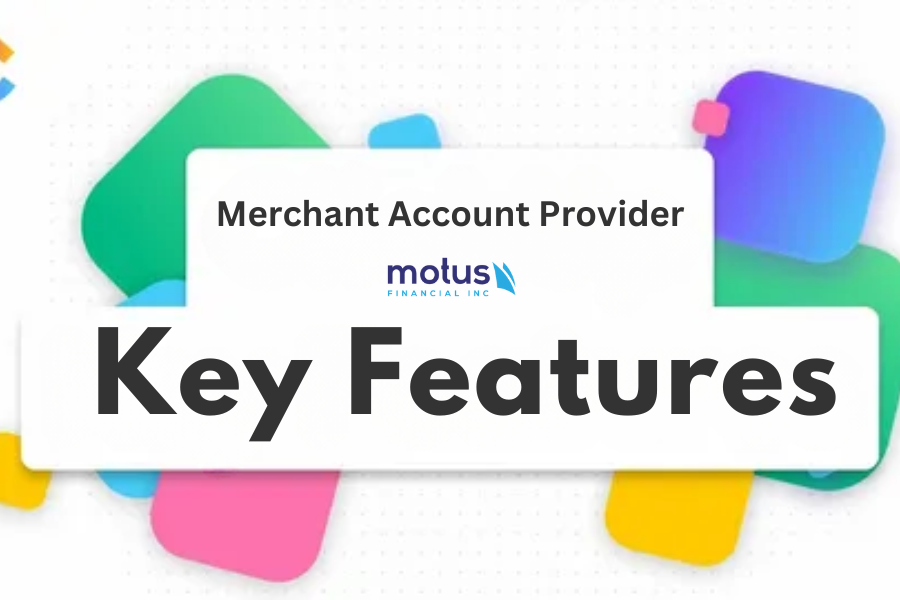
When choosing a provider for your merchant services for small business, it’s important to evaluate several factors to ensure you are getting the best service for your needs. Here are some features you should look for when evaluating potential providers:
1. Transparent Pricing
Avoid providers that hide their fees in fine print. Look for a provider that offers clear, upfront pricing, including transaction fees, monthly charges, and any other associated costs. Compare the pricing structures of different providers to find the best value for your business.
2. Integration Capabilities
Your merchant services should be able to integrate with your existing business systems, such as your website, inventory management tools, and accounting software. A seamless integration will reduce manual entry and make managing transactions much easier.
3. Security Features
Security should be a top priority when choosing a merchant services provider. Make sure that the provider complies with PCI-DSS (Payment Card Industry Data Security Standard) and offers encryption and fraud prevention tools. These security measures are essential for protecting your business and your customers from potential data breaches and fraud.
4. Customer Support
Even the best merchant services providers may encounter technical issues from time to time. Look for a provider that offers excellent customer support and can quickly resolve any problems you encounter. Availability of support is crucial—24/7 customer service is ideal for small businesses that operate at all hours.
5. Scalability
As your business grows, your merchant services should grow with you. Choose a provider that can scale with your business and accommodate higher transaction volumes, additional payment methods, and new sales channels. This ensures that your merchant account remains relevant as your business expands.
Read it also:- Choosing the Right Credit Card Processing Solution for Your Small Business in 2025
How to Set Up Merchant Services for Small Business
Setting up merchant services can seem overwhelming, but the process is typically straightforward if you follow these key steps:
1. Research Providers
Start by researching various merchant service providers that cater to small businesses. Look for a provider with experience in your industry and check their reputation for reliability, customer service, and security.
2. Understand the Costs
Be sure to get a clear understanding of the costs associated with each provider. This includes monthly fees, transaction fees, setup costs, and any additional charges for special services.
3. Prepare Your Business Information
To get started, you’ll need to provide your business details, such as your legal business name, tax identification number, bank account information, and financial records. This documentation helps the provider assess your business’s eligibility for merchant services.
4. Select a Plan and Integrate
Choose the merchant services plan that best suits your needs and start integrating it with your business. For brick-and-mortar businesses, this may involve setting up your POS system. For online businesses, you’ll need to configure your payment gateway and ensure your website is secure.
Common Challenges and How to Overcome Them
Though merchant services make accepting payments easier, they can come with challenges. Here are a few common issues and how to overcome them:
1. High Fees
Merchant service fees can sometimes be high, particularly for businesses with small transaction volumes. Look for providers that offer lower transaction fees or explore options like flat-rate pricing, which can help small businesses manage costs better.
2. Security Concerns
Data breaches and fraud are major concerns for businesses processing payments. Make sure you work with a provider that implements robust security measures and offers tools to protect customer data.
3. Technical Issues
Technical problems, such as system downtime or failed transactions, can disrupt your business. Ensure you have reliable customer support to handle any issues promptly.
The Role of Google My Business
In addition to setting up your merchant services, optimizing your online presence through platforms like Google My Business can help attract more customers. By creating and maintaining an accurate Google My Business profile, you can:
- Improve your business’s visibility in local search results.
- Display your accepted payment methods to reassure customers.
- Encourage customer reviews, which can enhance your credibility and attract more buyers.
Contact Us
At Motus Financial, we are dedicated to helping small business owners choose the right merchant services for small business. Whether you are setting up your first account or looking to switch to a better





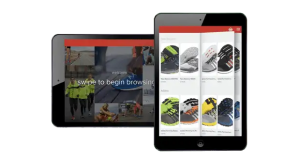
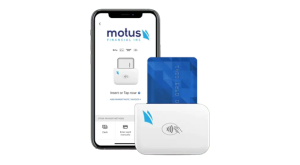
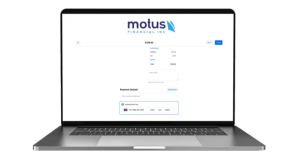
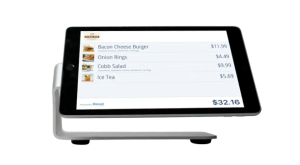 Our POS systems are designed to streamline in-store transactions. With features like inventory management, sales reporting, and customer tracking, our POS solutions help you run your business more efficiently. Our terminals are compatible with various payment methods, including chip cards, contactless payments, and mobile wallets.
Our POS systems are designed to streamline in-store transactions. With features like inventory management, sales reporting, and customer tracking, our POS solutions help you run your business more efficiently. Our terminals are compatible with various payment methods, including chip cards, contactless payments, and mobile wallets.
